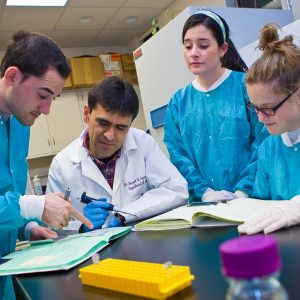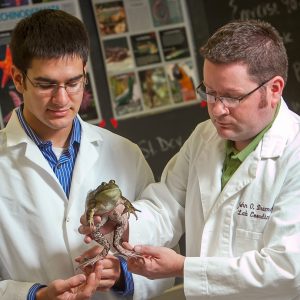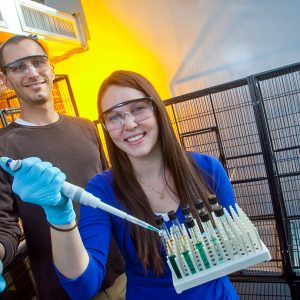Undergraduate Research
Research is the cornerstone of our program
Undergraduate research is an important element of the biology curriculum at Lafayette. It is such a critical component of student learning that we infuse research at the very onset of our program. In our introductory biology sequence, students begin Biology 111 using a module with a Course Based Undergraduate Research Experience (CURE as per HHMI, Howard Hughes Medical Institute). This experience is complemented by our SEA-PHAGES-focused Biology 112, where students become part of the nationwide community of researchers by exploring phage diversity, and isolating and characterizing bacteriophages from soils.
These experiences equip our students with the skills to deepen their approach to critical thinking in science as they migrate into our intermediate (200 level and higher) courses. Many of these courses include CURE modules as well, and are more extensively rooted in the scientific literature. Collectively, these experiences will prepare our students to seek out both on-campus and off-campus research experiences. This can happen through specific research coursework for credit (Biology 401-404 and Honors Thesis in Biology 495 and 496), summer research as EXCEL, Nalven and Newton Scholars, or as other independent or Lafayette-sponsored research opportunities promoted by science departments, national foundations and our Gateway Career Center partners. For students taking a course in research, they should expect to spend a full 180 hours across the semester in active engagement. Students approved to complete these courses will consult with their faculty mentor in developing, executing and carrying their projects to completion. Many of our graduating majors each year have been involved in collaborative research with faculty mentors. Thus, all Biology majors can expect genuine research experiences multiple times in both 100- and 200-level courses, and many more extend their research training with 400-level courses.



